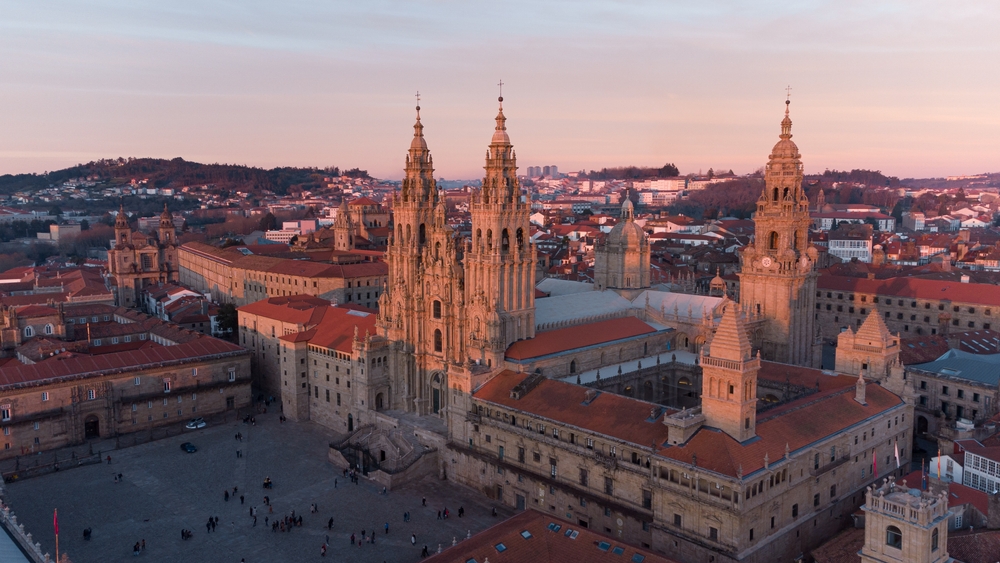ALBAWABA - If you're planning on giving Spain a visit, you probably should keep what's happening in Santiago de Compostela in mind.
Spain is a beautiful country with many places to see in it, such as Costa Brava, Menorca, Toledo, and Santiago de Compostela being some of them.
The surge in travel after the pandemic is causing a huge rise in tourism in Europe, which is compelling nations to implement actions that can make a balance between a healthy amount of tourism without it going overboard.

Shutterstock
Spain has not been immune to this issue, and Santiago de Compostela, home to the iconic cathedral on the Camino de Santiago pilgrimage, is a good example of this. If you're headed to Spain for a visit, it's important to take note of the situation there.
The popular destination located in Spain’s northwestern autonomous community of Galicia had almost 440,000 pilgrims in 2022, which went over its' 300,000 pilgrims average in previous years, and now the city's Mayor, Goretti Sanmartín, has set out a plan to combat this, in hopes of making the locals who live there have a better place to live and can find affordable housing for themselves.
How much would the tax be?
The proposal is for the tourist tax to be put forward to hoteliers in 2025, and this could be a nightly fee of between €0.50 ($0.55) and €2.50 ($2.77), depending on the type of accommodation. It is possible that the tourist tax could raise somewhere between €2.5 and €3 million per year for the city, which would be around $2.78 and $3.34 million dollars. All that money then would be used to help maintain the city.
Although it may come as a letdown to some, it's worth noting that this is not the first instance of such measures in Spain. The city of Barcelona has already instituted a mandatory tourist fee ranging from €2 ($2.2) to €7 ($7.7) per night, while the Balearic Islands charge a visitor expense of €1 ($1.1) to €4 ($4.4) per night for those older than 16.
What are the goals of the tax?

Shutterstock
The goals are to hopefully strike a balance between maintaining a healthy amount of tourism and preserving the local community's quality of life. These taxes aren't meant to discourage travelers, but rather to encourage responsible tourism, which can go a long way in ensuring that the destinations stay pristine for generations to come. Ultimately, these fees may benefit both the travelers and the local residents, creating better harmony between them.








